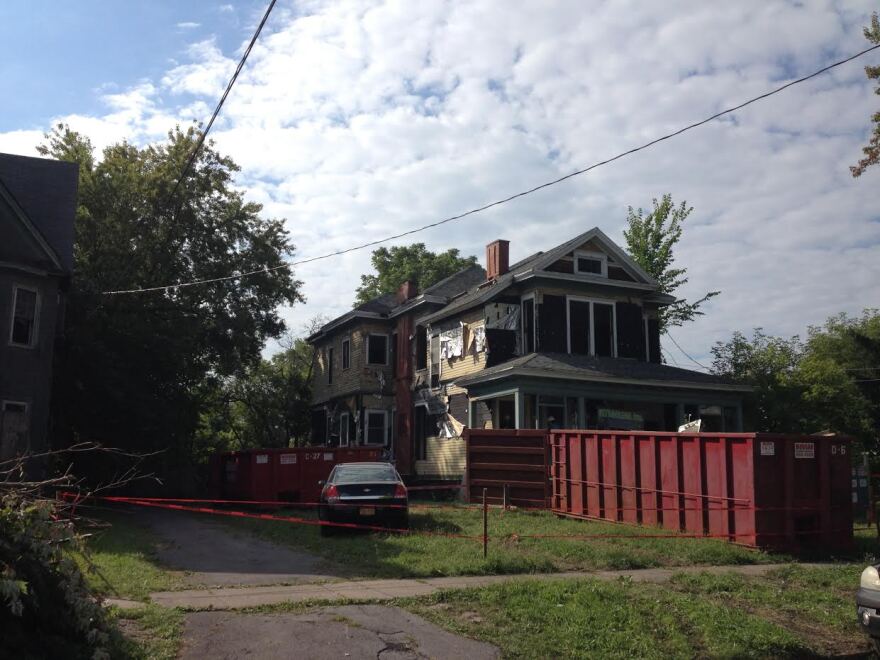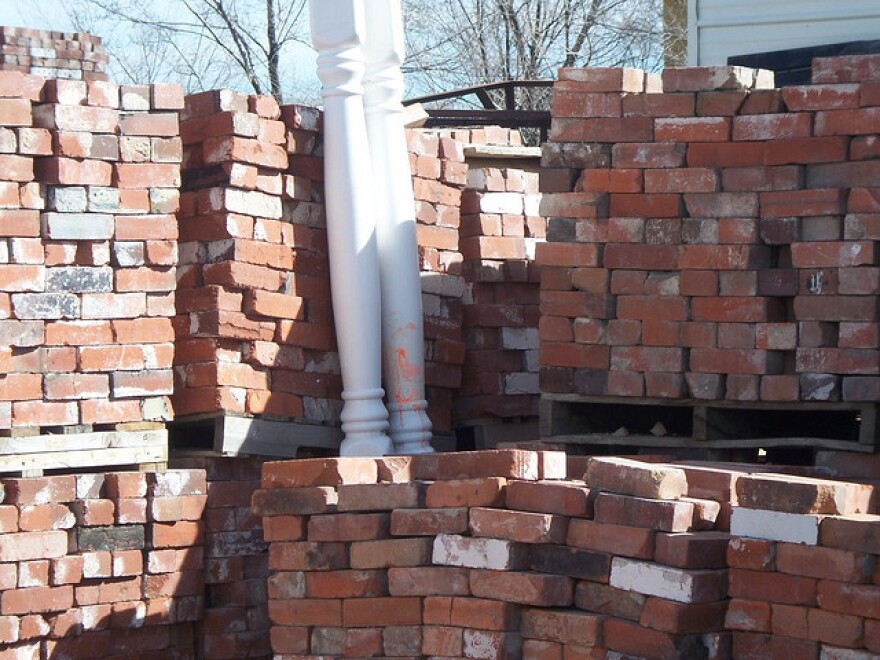The Greater Syracuse Land Bank will continue to use deconstruction as they demolish dilapidated properties across the city of Syracuse in the coming year. The results of a year-long experiment in the deconstruction process have proved fruitful so far.

There were six homes deconstructed instead of demolished last year, as the land bank continued acquiring dilapidated houses that were behind on taxes. Kevin Stack, a consultant on the deconstruction project, says the initial target was to deconstruct at least half of the materials in the targeted homes. They ended up deconstructing more.
"We averaged a 63 percent diversion rate, Stack said. “So we’re diverting materials that are normally destined for landfills and incinerators and repurpose, refurbish and reusing them."
One of the big questions during this pilot project was whether there would be a market for old architectural items, like windows or corbels. They found that there is -- with over $20,000 worth of these items resold to the local community. But that’s only one part of the deconstructed material that’s proved valuable.
“We’re actually harvesting lumber that was old growth lumber that was taken from the forests hundreds of years ago, that we can’t get today. So as a builder, we can’t buy lumber at the best lumber stores today that meets the quality of the lumber that we take out of these homes,” Stack said.

On top of that, deconstruction creates more jobs than demolition. It also keeps dangerous substances like lead out of the soil. On the other side of the ledger though, deconstruction costs $4,000 more per house than general demolition. But Stack says they’ve learned enough to go towards bringing that cost down.
"We’ve spent money learning the process and developing the infrastructure. So as this continues on it’s going to ramp down very quickly and we’re going to recoup the initial costs,” Stack said. “We’ve already made the investment so we can go back and harvest the knowledge, the embedded wisdom, to play this forward.”
Land Bank executive director Katelyn Wright agrees, expecting that deconstruction will be a part of the process in every home that needs to be demolished this year.
"We want to shift the needle in that direction, and salvage as much as possible,” she said. “We might not be accomplishing the same waste diversion rates in 2015 that we did in these six pilot houses but we want to see that there is some waste diversion in all of the houses we take down.”








